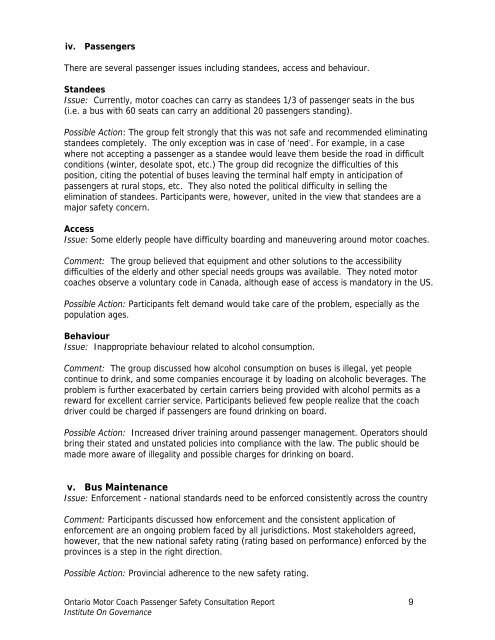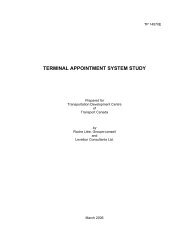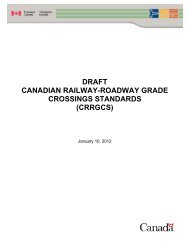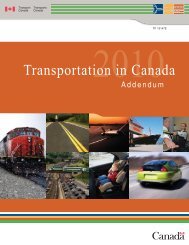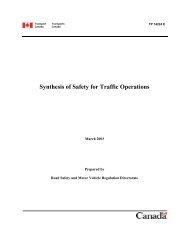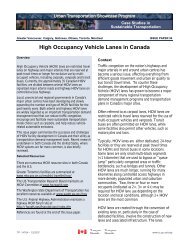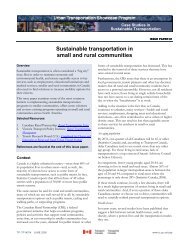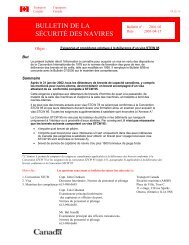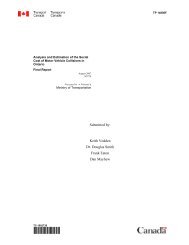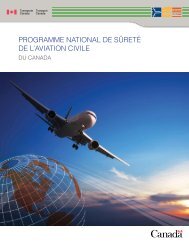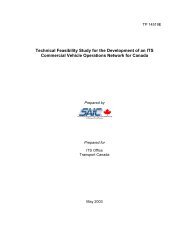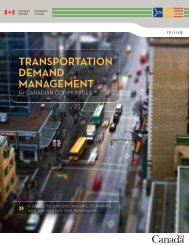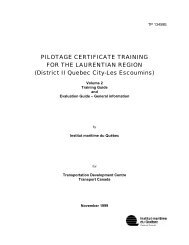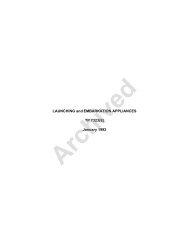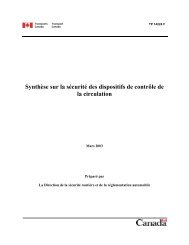Ontario Motor Coach Passenger Safety Consultation - Report -
Ontario Motor Coach Passenger Safety Consultation - Report -
Ontario Motor Coach Passenger Safety Consultation - Report -
You also want an ePaper? Increase the reach of your titles
YUMPU automatically turns print PDFs into web optimized ePapers that Google loves.
iv. <strong>Passenger</strong>s<br />
There are several passenger issues including standees, access and behaviour.<br />
Standees<br />
Issue: Currently, motor coaches can carry as standees 1/3 of passenger seats in the bus<br />
(i.e. a bus with 60 seats can carry an additional 20 passengers standing).<br />
Possible Action: The group felt strongly that this was not safe and recommended eliminating<br />
standees completely. The only exception was in case of ‘need’. For example, in a case<br />
where not accepting a passenger as a standee would leave them beside the road in difficult<br />
conditions (winter, desolate spot, etc.) The group did recognize the difficulties of this<br />
position, citing the potential of buses leaving the terminal half empty in anticipation of<br />
passengers at rural stops, etc. They also noted the political difficulty in selling the<br />
elimination of standees. Participants were, however, united in the view that standees are a<br />
major safety concern.<br />
Access<br />
Issue: Some elderly people have difficulty boarding and maneuvering around motor coaches.<br />
Comment: The group believed that equipment and other solutions to the accessibility<br />
difficulties of the elderly and other special needs groups was available. They noted motor<br />
coaches observe a voluntary code in Canada, although ease of access is mandatory in the US.<br />
Possible Action: Participants felt demand would take care of the problem, especially as the<br />
population ages.<br />
Behaviour<br />
Issue: Inappropriate behaviour related to alcohol consumption.<br />
Comment: The group discussed how alcohol consumption on buses is illegal, yet people<br />
continue to drink, and some companies encourage it by loading on alcoholic beverages. The<br />
problem is further exacerbated by certain carriers being provided with alcohol permits as a<br />
reward for excellent carrier service. Participants believed few people realize that the coach<br />
driver could be charged if passengers are found drinking on board.<br />
Possible Action: Increased driver training around passenger management. Operators should<br />
bring their stated and unstated policies into compliance with the law. The public should be<br />
made more aware of illegality and possible charges for drinking on board.<br />
v. Bus Maintenance<br />
Issue: Enforcement - national standards need to be enforced consistently across the country<br />
Comment: Participants discussed how enforcement and the consistent application of<br />
enforcement are an ongoing problem faced by all jurisdictions. Most stakeholders agreed,<br />
however, that the new national safety rating (rating based on performance) enforced by the<br />
provinces is a step in the right direction.<br />
Possible Action: Provincial adherence to the new safety rating.<br />
<strong>Ontario</strong> <strong>Motor</strong> <strong>Coach</strong> <strong>Passenger</strong> <strong>Safety</strong> <strong>Consultation</strong> <strong>Report</strong> 9<br />
Institute On Governance


